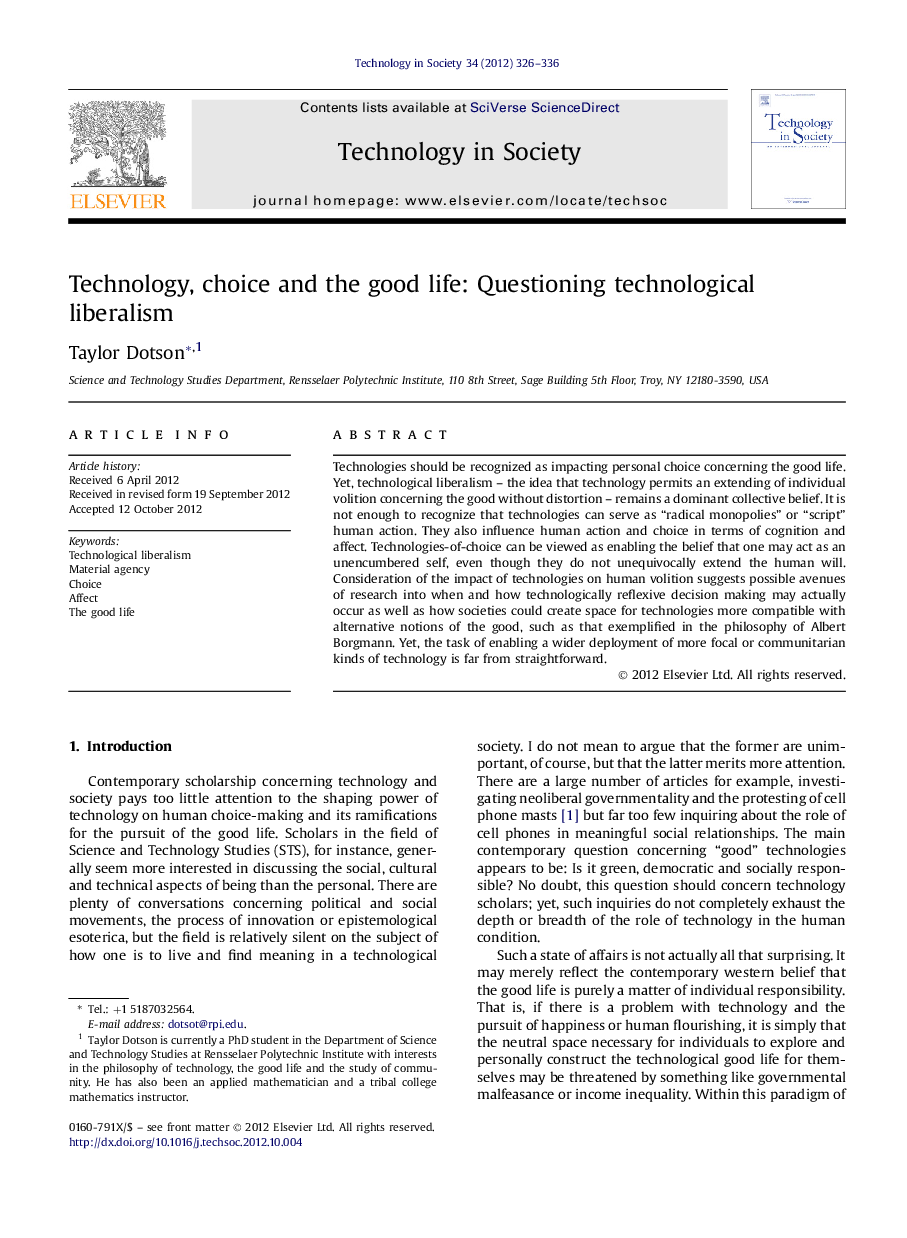| Article ID | Journal | Published Year | Pages | File Type |
|---|---|---|---|---|
| 375312 | Technology in Society | 2012 | 11 Pages |
Technologies should be recognized as impacting personal choice concerning the good life. Yet, technological liberalism – the idea that technology permits an extending of individual volition concerning the good without distortion – remains a dominant collective belief. It is not enough to recognize that technologies can serve as “radical monopolies” or “script” human action. They also influence human action and choice in terms of cognition and affect. Technologies-of-choice can be viewed as enabling the belief that one may act as an unencumbered self, even though they do not unequivocally extend the human will. Consideration of the impact of technologies on human volition suggests possible avenues of research into when and how technologically reflexive decision making may actually occur as well as how societies could create space for technologies more compatible with alternative notions of the good, such as that exemplified in the philosophy of Albert Borgmann. Yet, the task of enabling a wider deployment of more focal or communitarian kinds of technology is far from straightforward.
► Technologies argued to influence human decision-making concerning the good life. ► The paradigm of technological liberalism is problematized. ► Borgmann's philosophy is explored as alternative model for technological good life.
